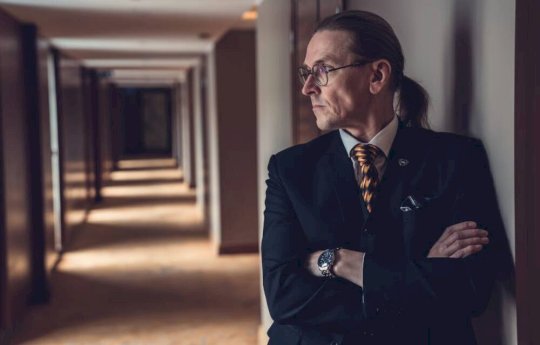Source: go.theregister.com – Author: Iain Thomson
Interview Mikko Hyppönen has spent the last 34 years creating security software that defends against criminals and state-backed actors, but now he’s moving onto drone warfare.
Hyppönen has worked at Data Fellows, which produced its first antivirus software in 1994 and later became the renowned Finnish security vendor F-Secure. In 2022, it split its business products into a company called WithSecure, where he serves as chief research officer. He’s widely respected in the industry and a frequent speaker at infosec events such as DEF CON and Black Hat, not to mention appearing on The Register’s Kettle podcast.
In August, he’s planning to move to Sensofusion, which has worked on anti-drone technology for over a decade and currently sells a passive detection system called Airfence that identifies drones and allows defenders to disable them. The biz builds hardware that links Airfence to military radar systems.
Eventually drones will be completely autonomous – they will fly themselves, pick the targets themselves, and make kill decisions themselves, and then we effectively will have killer robots
The infosec veteran became interested in drones after Russia’s invasion of Ukraine.
“There’s a war in Europe which is not too far away from where I live. I live two hours away from the Russian border, both my grandfathers fought the Russians in the Second World War, and we are living next to a very large and very unpredictable neighbor,” he explained – revisiting a topic he spoke about at 2023’s DEF CON 31 confab, which you can see below.
“The situation isn’t very good, and of course, cybersecurity matters, but that’s a very well understood problem with a lot of players. So I think this is more important right now.”
Like all Finnish men, and many Finnish women, Hyppönen participated in national service. He stayed on in the reserves and is currently a captain in the signals division.
The war in Ukraine has shown has changed the nature of combat significantly, he believes, and drones are one big reason.
As the Ukrainians showed last weekend with a daring raid that used automated craft to attack Russian airfields, cheap drones can have a devastating impact. Hyppönen said that at a recent NATO conference, venture capitalist and mathematician Thomas Dullien described drones as “expensive bullets” rather than as cheap aircraft.
Hyppönen told us the state of drone security is very similar to the creation and reaction to new code threats in cybersecurity.
In the early days of drone warfare in Ukraine, combatants focused on jamming signals to drones in the hope the craft would fall out of the sky, or their controllers would abort missions.
Fighters started using drones tethered to and controlled by fiber optic cables, but Hyppönen thinks even those craft have security weaknesses.
“You go after them with radar-based detection to see where they are physically flying, and then pass that information to a system which shoots them down. There are also ways of actually cutting the fiber optic cables while they are in the air,” he said.
“That’s exactly the cat and mouse problem you see in security code. When we counter something, they [attackers] will move to something else. Eventually drones will be completely autonomous – they will fly themselves, pick the targets themselves, and make kill decisions themselves, and then we effectively will have killer robots.”
- Ukrainians smuggle drones hidden in cabins on trucks to strike Russian airfields
- The UK wants you to sign up for £1B cyber defense force
- UK bans game controller exports to Russia in bid to ground drone attacks
- Brit soldiers tune radio waves to fry drone swarms for pennies
Hyppönen told us he’ll attend August’s annual hacker summer camp in Las Vegas (which comprises three security shindigs – BSides, Black Hat and DEF CON) representing WithSecure, but that will be his last gig before he quits the infosec business and focuses on drones.
He acknowledged he faces a steep learning curve, but feels this is something he must do.
“I’ve reached all the goals I set for myself in cybersecurity, and I’m 55 – I still have time to do things before I retire,” he explained. “I do believe anti-drone technology maybe has more importance, and more meaning to it, right now with the war raging on.” ®
Original Post URL: https://go.theregister.com/feed/www.theregister.com/2025/06/04/mikko_hypponen_drone/
Category & Tags: –
Views: 3




















































